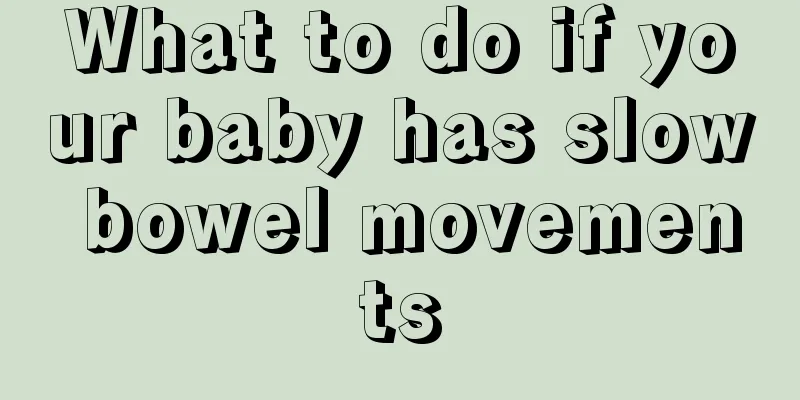Why does the baby sometimes retch?

|
Parents often find that their babies cannot eat and retch during the process of feeding them, which makes parents very anxious. Children often retch and cannot absorb nutrients well, which will affect the baby's health and development in the long run. So, why do babies retch? Understanding the reasons why babies retch and finding the problem is the parents' top priority. Let us understand the reasons why babies sometimes retch. 1. Overfeeding during the neonatal period, improper milk formula, swallowing large amounts of air while feeding; infants and young children eat too much at one time or the food is difficult to digest. Solving this problem is actually very simple. When bottle-feeding, the hole in the nipple should be of the right size and the nipple must be filled with milk to prevent the baby from inhaling air. If the baby is teething, you can use a nipple with larger holes to drink milk to reduce the pain caused by sucking. After feeding, the baby should be gently picked up, with his head resting on the mother's shoulder, and the baby's back should be patted gently to allow the air in the stomach to be expelled. Do not change the baby's position frequently after feeding, change the diaper before feeding, and do not change the diaper for the time being after feeding. 2. In addition, abnormal digestive function: systemic infectious diseases, if you suffer from upper respiratory tract infection, pharyngitis, pharyngitis, bronchitis, pneumonia and other diseases, or at the same time as high fever, nausea, loss of appetite, often accompanied by dry retching. 3. Developmental problems: Due to the functional defects of the lower esophageal sphincter, gastric juice or bile flows back into the esophagus, causing dry retching. For some babies, this may last for several months and then gradually improve. The above are common reasons why babies sometimes retch. The child’s stomach and intestines should be warm rather than cold. Special attention should be paid to dietary conditioning during the summer and autumn seasons. First, do not feed too much at one time to allow the child's stomach to adapt to the change of seasons. Second, remember that even in midsummer, do not drink too much cold drinks. Children are generally interested in cold drinks. If parents do not control it, the child's stomach will develop many symptoms over time due to being too cold. This is mainly due to spleen deficiency and spleen-stomach incompatibility. Try not to eat or eat less cold things. As the weather gets colder, while adhering to the principle of covering up in spring and freezing in autumn, always let your child wear a small vest to ensure that the vest will not get cold. |
<<: How to prevent spinal curvature in children
>>: What to do if your baby has a cold and cough for three months
Recommend
Symptoms and treatment of cerebral palsy in children
Children have relatively weak physical resistance...
What are the growth and development standards for children?
As the baby grows older, he or she will be more w...
What causes baby spit-up?
Because babies have low body resistance and vario...
What should I do if my child has white spots on his throat?
In today's society, most people, whether fath...
Children with amblyopia need early treatment
Amblyopia is a very common disease in daily life,...
What should I do if my child has a high fever? Don't worry, mom
The thing that parents fear the most after becomi...
What should I do if my three-year-old child stutters?
The healthy growth of children is the greatest an...
Causes of yellow runny nose in children
Some children will have a runny nose when they ar...
Treatment for vomiting in six-month-old babies
Recently, the phenomenon of six-month-old babies ...
Do babies need to squeeze their nipples?
The baby's nipples need to be squeezed out so...
2-year-old cough with phlegm
Compared with adults, children's bodies are s...
What is the best food for children with low blood sugar?
Hypoglycemia usually occurs in middle-aged people...
Dietary treatment for psoriasis in children
Everyone has heard of psoriasis, a skin disease t...
How to use medication for dermatitis in children?
If the child does not pay attention to the hygien...
There is a patch of tongue coating on the child's tongue
Anyone who has some understanding of the human to...









